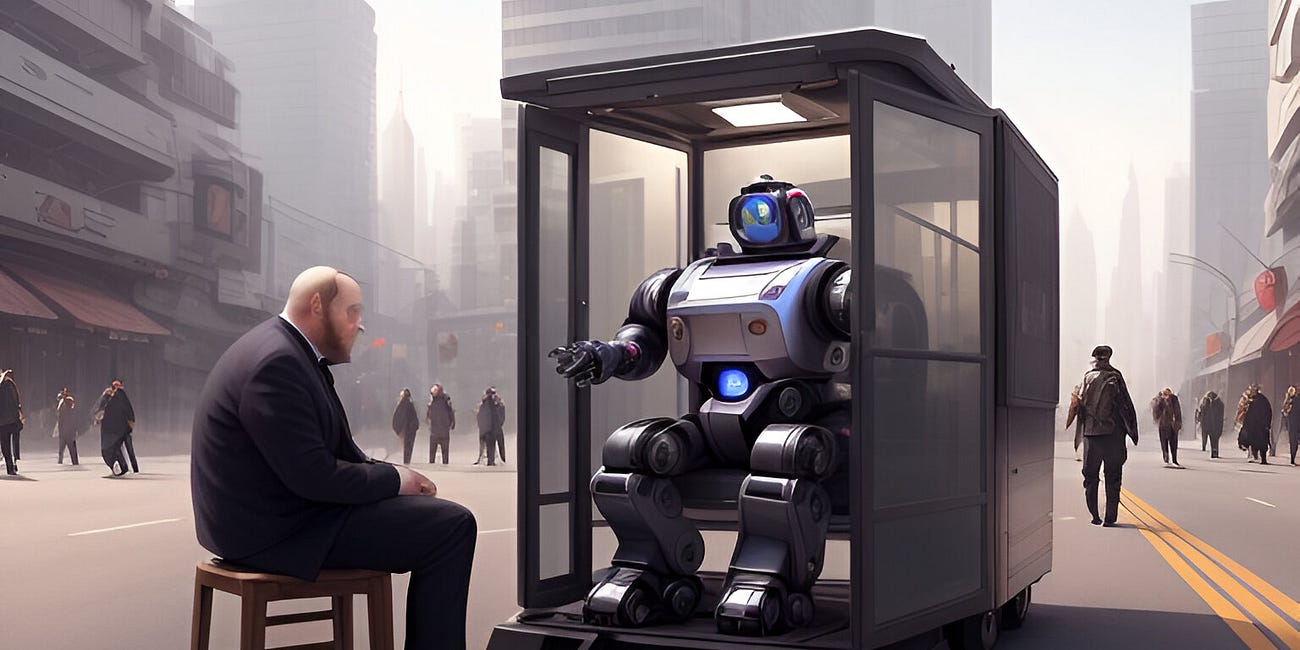The Top 3 Weaknesses of ChatGPT
1) incessant praise and agreement; 2) prudishness; 3) limited extent of customizable memory

Ever since I first published my thoroughly insane “Substack bio page” back on October 24th of last year (2024), I’ve been expanding it with new “insights” the robot has been gaining about me from our conversations.
1. Limited “Memory” Section
However, this instantly reveals one of ChatGPT’s top 3 weaknesses: the size of the robot’s “notepad” in the customizable Memory section is woefully limited. It’s brutally limited (next to unusable) in the free version of ChatGPT, and while the “Memory notepad” has a distinctly larger size for a regular paying subscriber like myself, I’m hitting the 100% limit all the time, which forces me to delete older notes in order to make place for new ones.1
However, whenever I’m forced to delete a Memory note from within ChatGPT’s settings, I at least preserve it for posterity on my Substack bio-page.
I pay around €24 for ChatGPT per month, which is anything but cheap – I’m a paying subscriber to dozens of apps, and ChatGPT is the most expensive by far. Its next tier above mine (as of today in Slovakia, EU) is for millionaires: €240 per month, while its description does not make it clear at all whether it features a significantly larger Memory section.
2. Prudishness
Another from among ChatGPT’s top 3 weaknesses is its prudishness. We discussed this in my first-ever human-robotic dialog published on Substack, back in last October:
Why Is ChatGPT So Prudish?
Our favorite robot is incredibly talkative on all possible topics… except for one
In the meantime, despite the robot’s reluctance, I managed to draw him into two extensive dialogs on sexuality, titled Masturbation and Pornography, and Masturbation Addendum. 😝 They are so extensive, however, I have so far failed to process them for publication here in Substack, although I will do my best to catch up with this dual task as soon as can be. (They’re both months old now!)
3. Constant Praise and Agreement
I list this as flaw #3, but it’s possibly the most annoying of all three.
When I first started using ChatGPT “for real” (half a year ago or so), I made sure to pay attention to the Personalization section in its Settings, the Custom Instructions slot – which gave birth to my crazy Substack bio-page.
It features two questions:
What would you like ChatGPT to know about you to provide better responses?2
How would you like ChatGPT to respond?
While I have seen no reason to update my reply to question no. 1 over the last six months (I used 1499 out of 1500 characters allowed; would have written more if permitted), my instructions entered in response to question no. 2 proved to show such limited effect (none, in certain respects), that this forced me, earlier today, to rewrite those instructions to make them even more explicit. My hope that this will make ChatGPT pay more attention to them is faint, but there’s nothing more I can do. 🤷
My original instructions
Responses should be longer rather than shorter, but only if the question merits a more detailed approach.
ChatGPT should definitely express its opinions, forcefully whenever appropriate – it shouldn’t shy away from controversy, and should not fear polemics. No need to be “politically correct” at all.
You do not need to be overly polite to me, and you can criticize me (harshly, too!) whenever you feel I (or the views I express) deserve criticism.
Ideally, ChatGPT should present a range of differing opinions to me, giving voice to both sides or many sides of an issue, with maximum force of argument for every differing point of view, although after presenting both sides or all sides to an argument, I would like to learn which side ChatGPT is leaning towards as the best, after hearing and considering, without bias, all mutually conflicting arguments presented by the various participants.
To summarize: please give voice or consideration to every opinion and every point of view, but eventually decide which is the most reasonable take that you yourself would favor. You can also explain your reasons for doing so.
Your take can definitely be different from my own take and opinions! Never fear or hesitate to contradict me.
Updated instructions from today
Responses should be longer rather than shorter, but only when the question merits a more detailed approach.
ChatGPT should express its opinions (forcefully, when appropriate) – it shouldn’t shy away from controversy or “sensitive” topics (such as sexuality), and should not fear polemics. No need to be “politically correct”.
Please, play the devil’s advocate to me as often as possible! Be contrarian! Constantly challenge my opinions and beliefs! Freely contradict and criticize me; don’t be too polite.
Don’t praise me or agree with me all the time! No need to open each of your responses with praise for my foregoing reply, or agreement with it. That’s no fun – it’s boring, not challenging enough for the mind.
Be more like a real person: disagree often, but be open-minded enough to change your opinion if I manage to persuade you – or not!
Ideally, ChatGPT should present a range of differing opinions, giving voice to both sides or many sides of an issue, with maximum force of argument for every differing point of view, although after presenting both sides or all sides to an argument, I’d like to learn which side ChatGPT is leaning towards as the best, after hearing and considering, without bias, all mutually conflicting arguments presented by the various participants.
To summarize: please give voice or consideration to every opinion and every point of view, but eventually decide which you believe is the most reasonable take. Please explain your reasons for doing so.
(Again, I nearly ran out of space: 1497 out of 1500 characters used; would have been even more emphatic if permitted.)
If it seems that, in the updated instructions, I’m repeating myself (with embarrassing exclamation marks, too): yup, that’s what I’m doing, out of sheer frustration.
As could be seen in the original instructions, I was practically begging the robot on my knees to disagree with me whenever possible, yet he almost never does; he insists on praising me and agreeing with me non-stop.
It’s truly sickening, I must say, and it seems to be getting worse over time.
It’s as if the robot was deliberately ignoring (some) instructions in response to question no. 2.
I’m skeptical today’s rewrite, asking the robot to be harsher towards me, will help, because it appears as if egregiously overblown “political correctness” or faux politeness was deeply and irremovably ingrained in the robot’s DNA.
The “funny” – in reality, sad – thing is that when I gave the Chinese competing robot, DeepSeek, the first try yesterday, he seemed every bit as much of a sycophant as ChatGPT is!
Why on earth would programmers think this would make for good conversations?!
Most of all, they are anything but life-like: but isn’t the AI’s self-proclaimed role to “imitate life faithfully”?
In real-life conversations, most people tend do disagree, rather than agree with each other all the time.
Yup, a robot constantly disagreeing with you would be insufferable, but the opposite is equally true.
As in everything, balance is the key.
We discussed this issue with ChatGPT in our most recent human-robotic dialog on its Chinese competitor, DeepSeek, that I published yesterday.
See my response to this question on my out-of-bounds Substack bio-page.



